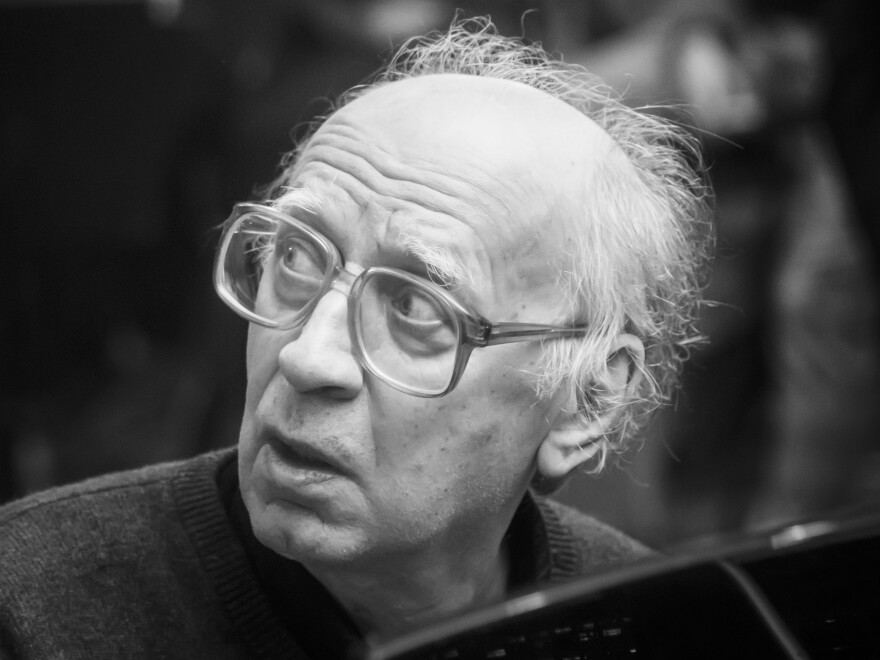Ukrainian composer Valentin Silvestrov almost didn't make it out of his hometown of Kyiv at the beginning of the 2022 Russian invasion. First, his daughter had to convince him to escape to safety; then, every train was too packed to board. Luckily, an acquaintance spied him and drove, via back roads, to the Polish border, where he caught a train to Berlin.
If you don't know the 86-year-old composer's music, a new album by conductor Christopher Lyndon-Gee and the Lithuanian National Symphony Orchestra makes a sonically satisfying place to start. It contains a pair of symphonic works that embody two recurring ideas for Silvestrov: that an end can also be a beginning, and that sweet, nostalgic music can thrive alongside concussive eruptions.
In Postludium for Piano and Orchestra, the composer essentially offers an ending, a "postlude," that becomes something brand new by mixing the avant-garde with old-school romanticism. The piece convulses in orchestral earthquakes of low brass (complete with aftershocks), but eventually gives way to delicate music that yearns for the long-ago beauty of Mozart.
The more expansive work on the album is a 44-minute symphony for violin and orchestra titled Dedication. Who's it dedicated to? Lyndon-Gee, writing in the album's booklet, treats it as an homage to the "life-force" of the human race — which encompasses not only tragedy, but also love and renewal. And yet for Silvestrov, he says, "Everything is a postlude to that which is slipping, inevitably and unceasingly, from between our fingers."
In Dedication, the violin — played with unwavering detail by Janusz Wawrowski — is not battling against the orchestra for domination, as in a typical concerto. Instead, the two protagonists complement each other, breathing as a single organism in Silvestrov's colossal exhalations of sound. Great waves of percussion crest over a spiky violin, a reminder that Silvestrov's early works from the 1960s were considered too avant-garde for Soviet-era officials.
Silvestrov has created his own sound world, charged with turbulence and bittersweet fragments of melody that can seem like quotes from other composers, but aren't. Near the end of Dedication, an elegiac theme, reminiscent of Gustav Mahler, emerges in the strings, struggling to rise ever higher through a dark cloud of roiling harmonies.
It's a tragic irony, but Silvestrov's stock has risen since the Russian onslaught. He's now the de facto musical spokesperson for his homeland, and more people are hearing his music. The day after he found himself in exile in Berlin, he began composing again, most likely thinking of the past — of endings and beginnings that are undoubtedly finding their way into his extraordinary music.
Copyright 2024 NPR



